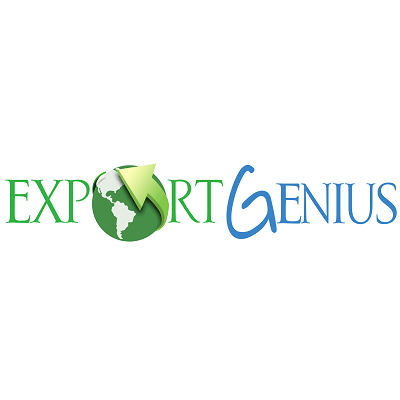Description

Export Genius

Value on Board
Comprehensive Overview: Export Genius vs Value on Board
Export Genius and Value on Board are both entities involved in the provision of data analytics and trade intelligence services, but they have distinct focuses and offerings. Let's explore each one based on the criteria you've provided:
a) Primary Functions and Target Markets:
Export Genius:
-
Primary Functions:
- Export Genius specializes in providing trade data solutions that include import-export data, global trade insights, and market analytics.
- It offers detailed customs data, market research reports, and analysis of international trade activities.
- Users can access information on trading activities of various countries, including insights on traders, product demand, and market conditions.
-
Target Markets:
- Businesses involved in international trade, including manufacturers, exporters, importers, logistics companies, and market intelligence agencies.
- Industries such as textiles, machinery, electronics, automobiles, chemicals, and pharmaceuticals.
- Government agencies and trade organizations also use their data for policy-making and strategizing.
Value on Board:
-
Primary Functions:
- As of my knowledge cutoff, Value on Board is less known and doesn't have as clear a footprint in the market as Export Genius. It may refer to an emerging service or a niche player focused on providing value-added services for trade or shipping industries.
- If it deals with trade analysis, its functions might include leveraging data to optimize supply chains, improve shipping logistics, or enhance trade efficiencies.
-
Target Markets:
- If it parallels other industry tools, its targets would likely include logistic companies, trade professionals, and businesses looking to optimize supply chain management.
b) Comparison in Terms of Market Share and User Base:
Export Genius:
-
Market Share:
- Export Genius is considered a well-established player in the trade intelligence industry with extensive market penetration, recognized for its comprehensive databanks and analytical services.
- It holds a significant portion of the market for global trade intelligence, particularly in developing sectors.
-
User Base:
- It boasts a diverse user base across many nations, benefiting companies looking to expand globally by providing reliable trade data.
- The user base includes key industry players, from SMEs to large corporations.
Value on Board:
-
Market Share:
- Given its lesser-known status, it likely holds a smaller market share unless it positions itself as a niche or highly specialized service within a specific segment of trade or logistics.
- Limited public data is available to define its exact standing in the industry.
-
User Base:
- May target more specialized or localized markets or be in its growth phase trying to establish a broader customer base.
c) Key Differentiating Factors:
Export Genius:
- Data Depth and Breadth:
- Offers a vast array of data across many countries and industries, with detailed insights into trade activities and trends.
- Established Reputation:
- Known for reliability and over a decade of experience in the trade data analysis sector.
- Comprehensive Services:
- Provides varied products like detailed market reports, competitor analysis, and real-time data updates.
Value on Board:
- Specialization:
- If its offerings involve advanced analytics or specialized logistics insights, its differentiation could be through niche functions or innovative approaches to trade value maximization.
- Customization or Integration:
- Could provide specialized tools or integrated solutions tailored to specific client needs or sectors.
- Emerging Features:
- New offerings or technologies that might not be available with established giants like Export Genius, focusing on agility and customer-centric innovations.
Overall, Export Genius is a more established player with a comprehensive product offering and a wide reach, while the specifics on Value on Board, based on available data, are less clear, possibly indicating its status as a niche or emerging player in the market. For the most accurate and updated insights, direct company sources or recent industry analyses would be recommended.
Contact Info

Year founded :
2011
Not Available
Not Available
Not Available
Not Available

Year founded :
2018
Not Available
Not Available
France
http://www.linkedin.com/company/value-on-board
Feature Similarity Breakdown: Export Genius, Value on Board
To provide a detailed feature similarity breakdown for Export Genius and Value on Board (assuming they are both trade data analytics platforms), we should consider the common functionalities and unique offerings of each platform. Here's an analysis based on typical features found in such tools:
a) Core Features in Common
-
Trade Data Access:
- Both platforms likely offer extensive databases of import and export records. This includes data by country, industry, HS code, etc.
-
Market Analysis Tools:
- They probably provide tools for conducting market analysis, helping users to understand trade flows, track market trends, and identify top trading partners.
-
Customs Data Reports:
- Users can generate reports based on customs data, offering insights into import-export dynamics.
-
Dashboard and Visualization:
- Both platforms are expected to offer customizable dashboards with data visualization capabilities to make data more accessible and actionable.
-
Search Functions:
- Advanced search capabilities to filter and analyze data based on various parameters like product, country, date range, etc.
-
Competitor Analysis:
- Tools to analyze competitors' trading patterns and identify potential opportunities or threats.
-
Industry Insights:
- Access to industry-specific insights and reports that can help businesses make informed decisions.
b) User Interface Comparison
-
Accessibility and Ease of Use:
- Both platforms are likely designed for business users, so they maintain a user-friendly interface with intuitive navigation.
-
Layout and Design:
- While both might offer clean and professional interfaces, differences could exist in their visual aesthetics and user experience flow. Export Genius might focus on detailed data tables and comprehensive menus, whereas Value on Board could prioritize graphical representations and streamlined workflows.
-
Customization Options:
- Platforms typically offer varying levels of customization in terms of dashboards and reports, which can affect how users interact with the data.
c) Unique Features
-
Export Genius:
-
Country-Specific Data Solutions: Export Genius might offer more specialized data solutions or modules focused on specific countries, providing deeper insights into particular markets.
-
Integration Capabilities: It may provide better integration options with third-party software such as CRM or ERP systems, enhancing data utility.
-
-
Value on Board:
-
Real-Time Data Updates: It might offer more real-time data updates, providing users with the most current trade information.
-
Predictive Analytics: Value on Board could integrate predictive analytics to forecast trade trends, thus offering a forward-looking perspective unique from Export Genius.
-
Conclusion
While both platforms share several core functions essential for trade analysis, they might differ in their interface style and unique feature set. Export Genius may excel in country-specific depth and integration, whereas Value on Board possibly offers real-time capabilities and innovative analytics. Evaluating these platforms would best involve considering specific organizational needs and preferences for unique functionalities.
Features

Not Available

Not Available
Best Fit Use Cases: Export Genius, Value on Board
Export Genius and Value on Board are both tools designed to assist businesses in various aspects of trade and market analytics, but they cater to different needs and scenarios. Let's break down their best fit use cases, target businesses, and how they cater to different industry verticals or company sizes:
Export Genius
a) Best Fit Use Cases
-
Types of Businesses or Projects:
- Importers and Exporters: Companies engaged in international trade can benefit from Export Genius to understand market trends, monitor competition, and identify new opportunities in global markets.
- Market Research Firms: Professionals conducting in-depth analyses of international trade can use Export Genius for its comprehensive data sets, which support robust research findings.
- Manufacturers: Those looking to expand their product reach internationally can leverage the insights offered by Export Genius to identify demand in different countries.
- Consultancy Firms: Consultants working with international trade businesses can use the data to offer strategic advice regarding entry into new markets and competitive positioning.
-
Scenarios:
- When detailed trade intelligence is needed, such as comprehensive import-export data, including statistics and analytics.
- When companies are entering new international markets and require a deep understanding of market dynamics and competitive landscapes.
d) Industry Verticals and Company Sizes
- Industry Verticals: Export Genius can serve industries like automotive, electronics, pharmaceuticals, agriculture, textiles, and consumer goods, where detailed trade data can influence market strategy.
- Company Sizes: It caters to small to large enterprises with varying data needs, offering scalable solutions that can be customized based on the depth and breadth of data required.
Value on Board
b) Preferred Scenarios
-
Types of Businesses or Projects:
- Logistics and Supply Chain Companies: This tool is ideal for businesses that need to optimize logistics operations, ensure efficient cargo management, and reduce costs.
- Retailers and Distributors: Companies that handle large volumes of inventory and transportation can use Value on Board to streamline their operations.
- E-commerce Platforms: Platforms requiring efficient supply chain coordination and delivery management can benefit significantly.
- Freight Forwarders: Companies that manage the movement of goods across borders need reliable tools for cargo valuation and orchestration.
-
Scenarios:
- When businesses need to enhance their logistics efficiency and transparency across supply chains.
- In projects focusing on reducing transport costs and improving delivery times through optimized routing and logistics solutions.
d) Industry Verticals and Company Sizes
- Industry Verticals: Value on Board is particularly suited for industries like transportation and logistics, retail, e-commerce, and FMCG, where supply chain efficiency is crucial.
- Company Sizes: It is beneficial for mid-sized to large enterprises that handle complex logistics and seek to improve operational efficiency through sophisticated tools.
In summary, Export Genius is an excellent solution for companies looking to enhance their market intelligence and export strategies across industries. On the other hand, Value on Board is more tailored for businesses needing robust logistics and supply chain solutions to streamline operations and reduce costs. Each serves unique needs and can complement each other in scenarios where businesses need both market intelligence and supply chain optimization.
Pricing

Pricing Not Available

Pricing Not Available
Metrics History
Metrics History
Comparing undefined across companies
Conclusion & Final Verdict: Export Genius vs Value on Board
To provide a comprehensive conclusion and final verdict between Export Genius and Value on Board, we must analyze their offerings, assess their strengths and weaknesses, and advise potential users. However, it's important to note that without specific details about these products, I’ll provide a general framework for evaluating them.
Conclusion and Final Verdict:
a) Considering all factors, which product offers the best overall value?
To determine which product provides the best overall value, consider the following factors:
- Cost vs. Features: Evaluate the pricing models of Export Genius and Value on Board in relation to the features offered. The product that provides more relevant features or higher quality outputs for a comparable or lower price generally offers better value.
- Usability and Interface: Assess which product is more user-friendly and has a more intuitive interface, allowing for easier adoption and faster workflows.
- Customer Support and Resources: Consider the quality and availability of customer support, training materials, and resources. A product offering comprehensive support might offer more value in the long run.
- Accuracy and Reliability of Data: Evaluate which product delivers more accurate and reliable data, as this is crucial for decision-making.
Verdict: The product offering the best overall value can only be determined by evaluating the specific needs of the user or organization. If a precise analysis of features, costs, and organizational needs is conducted, the choice becomes evident based on which product aligns best with primary requirements.
b) Pros and Cons of Choosing Each Product:
Export Genius
Pros:
- Industry Reputation: If Export Genius is known for its expertise in trade data, businesses relying heavily on accurate trade insights might benefit.
- Comprehensive Data: Known for providing extensive export-import trade data.
- Specialized Features: May offer specialized tools for data analysis and reports suited for global trade.
Cons:
- Cost: If premium features are expensive, it might not be suitable for smaller businesses.
- Complexity: May have a steeper learning curve due to advanced features.
Value on Board
Pros:
- Cost-Effectiveness: If it offers competitive pricing, it might be a more budget-friendly option.
- Ease of Use: Designed for ease of use, leading to faster adoption.
- Flexible Usage: Possibly offers flexible features that cater to SMEs and larger enterprises alike.
Cons:
- Limited Features: If lacking in-depth data analytics features, it might fall short for users needing detailed analysis.
- Data Constraints: May not have the depth of data coverage as specialized tools like Export Genius.
c) Recommendations for Users Trying to Decide:
- Identify Needs: Clearly define what each business needs from a trade data platform. Are detailed analytics or ease of use more important?
- Pilot Testing: Wherever possible, take advantage of free trials or demo versions to get a practical feel of both products.
- Peer Reviews: Look for user reviews or case studies to see how similar businesses have benefited from each product.
- Budget Considerations: Weigh the cost against the benefit of features. For tighter budgets, focus on essential features over premium offerings.
- Future Scalability: Consider whether the product can grow with your business needs, providing more advanced functionality as required.
- Consultation: If uncertain, consulting with experts or reaching out to user communities might provide insights not immediately apparent.
By following this structured approach, users can make more informed decisions between Export Genius and Value on Board, selecting the product that aligns best with their specific business goals and resources available.
Add to compare
Add similar companies




